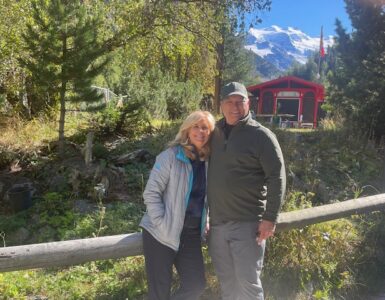Studio 5 Contributor and Family Therapist, Julie Hanks tells you what to do when an old rivalry resurfaces.
Few people feel neutral about their High School experience. You either loved it or experienced it as pure torture. Or a little of both. In the hit movie “You Again”, an exaggerated comedy about coming face to face with the women who bullied or betrayed you in High School, audiences reflect on their own High School experiences. Whether you were popular or picked on, prom queen or band geek, the bully or the bullied, you’ve probably experienced some insecurities and heartaches of your own during adolescence.
First love, first betrayal, new freedom, shifting hormones, and changing body make adolescence a time of insecurity and uncertainty that can resurface throughout adult life. As you shifted from family focus to peer focus, attempting to establish your own identity, adolescence experiences and emotions were potent then, and now. If a colleague gets a promotion at work that you think you deserve, it may dredge up the disappointment of not winning the student body election. Finding out that a trusted adult friend has broken a confidence may remind you of an earlier betrayal of trust when your high school so-called “best friend” spread a rumor about your throughout the school.
Here are some tips to soothe your inner adolescent and move beyond High School insecurities:
1) Adolescent experiences impact you but they don’t define you
All experiences help to shape who we are, but we get to choose who we will become. Many people use the mistreatment of earlier years as motivation to succeed as adults, or as fuel for their passion to help others.
Tina M. shared on Facebook says about her high school experience: I knew it was more in important to respected then to be “popular”, and in the end it always wins. We never know how we will impact the lives of others by just being accepting. I spent a lot of friday nights at home, but I knew my life was …different then those other kids at school and that one day they would get out of school and life would be a “slap in the face” so to speak. I had a lot of trials that caused me to have to “grow up” before the other kids and it made it all hard when other kids were really spoiled and had it easier. I tried to just be friendly regardless and now 11 years later they are all adults and i still enjoy a lot of their friendships and company. I was glad that I chose to just be kind.
2) It is never too late to apologize or to accept an apology
If you run into to a former classmate that you hurt, apologize. It always feels better to resolve something unresolved. Conversely, if someone who has betrayed you in the past apologizes for their immaturity, accept it so you can both move on. As an adult, I recognized that I needed to apologize to one of my sisters for being excessively mean during our adolescence. I even wrote a song for her. As adults, we are the best of friends because I apologized and owned my hurtful actions, and because she graciously accepted my apology.
3) People grow and change
The teens that may have hurt, or betrayed you in the past no longer exist. They are now adults with a wealth of life experiences. Even if you never run into them as adults, it may be helpful for you to imagine them as adults, with adult responsibilities, instead of that mean adolescent, in order for you to move past your pain.
4) Use your pain to empathize with others
If you were bullied, or taunted, you know the hurt and the self-doubt that comes with being mistreated. As an adult, you can use that pain to support and empathize with others who are going through difficult emotions. In my early adolescence I experienced firsthand the pain of being bullied. As I’ve matured, I’ve used that pain to empathize and become more sensitive to others in pain. Looking back, I can see that the bullying and taunting sprung from the insecurities and pain of the kids involved and had very little to do with who I was.
5) Teach children that they can make a difference
Bullying, teasing, name calling echo in victims’ minds long after the taunting has stopped. Likewise, the kind words or acts of encouragement and acceptance can provide hope to another person for years. Teach your children skills of emotional awareness in themselves and sensitivity to others.
Andrya Lewis shared this comment on Facebook: A couple years ago on face book I friended a guy who I was pretty sure wouldn’t remember me. He was a popular football hero type and the best friend of a guy I had a major crush on for all four years. I wasn’t part of that crowd and… had no reason to think he would know who I was. But as soon as he accepted my friend request he told me that he was a teacher and a football coach now and that I probably have legendary status among the students and athletes he works with. He holds me up to them as an example of how you should be. He tells them that I was an athlete and got good grades and was involved in lots of activities and was friends with everyone from every crowd. It was a crazy, amazing moment. I didn’t think he would know who I was! And although the first conversation we ever really had took place on face book 20 years after we graduated, THAT’s what he remembers about me! And not just remembers, but admired at the time. Wow. It was so cool.
October is National Bullying Prevention Month. For information go to www.pacer.org
For additional self-improvement & relationship resources connect with me at www.juliehanks.com.
Visit www.wasatchfamilytherapy.com to learn about my therapy clinic and individual, couple, family, & group counseling services designed to strengthen you and your family!
















Add comment